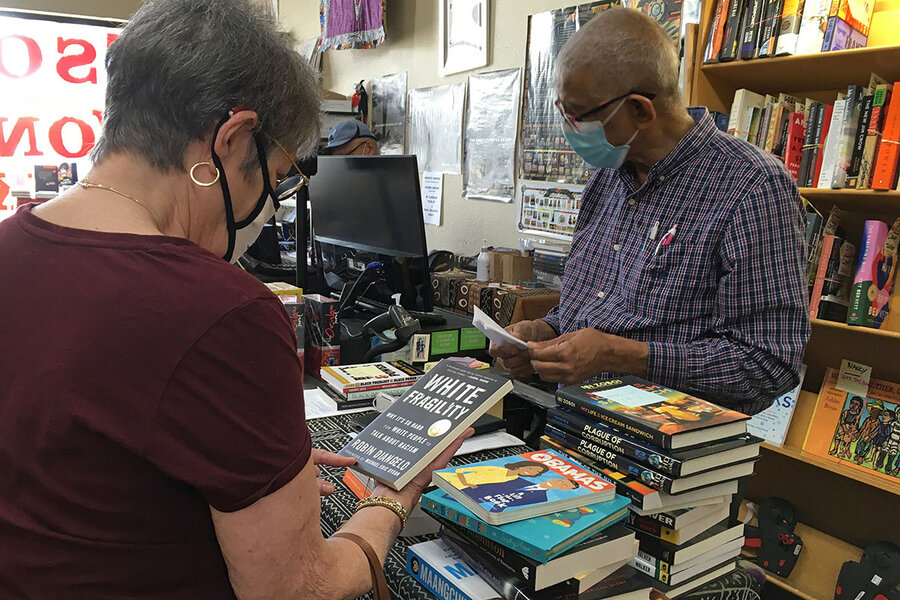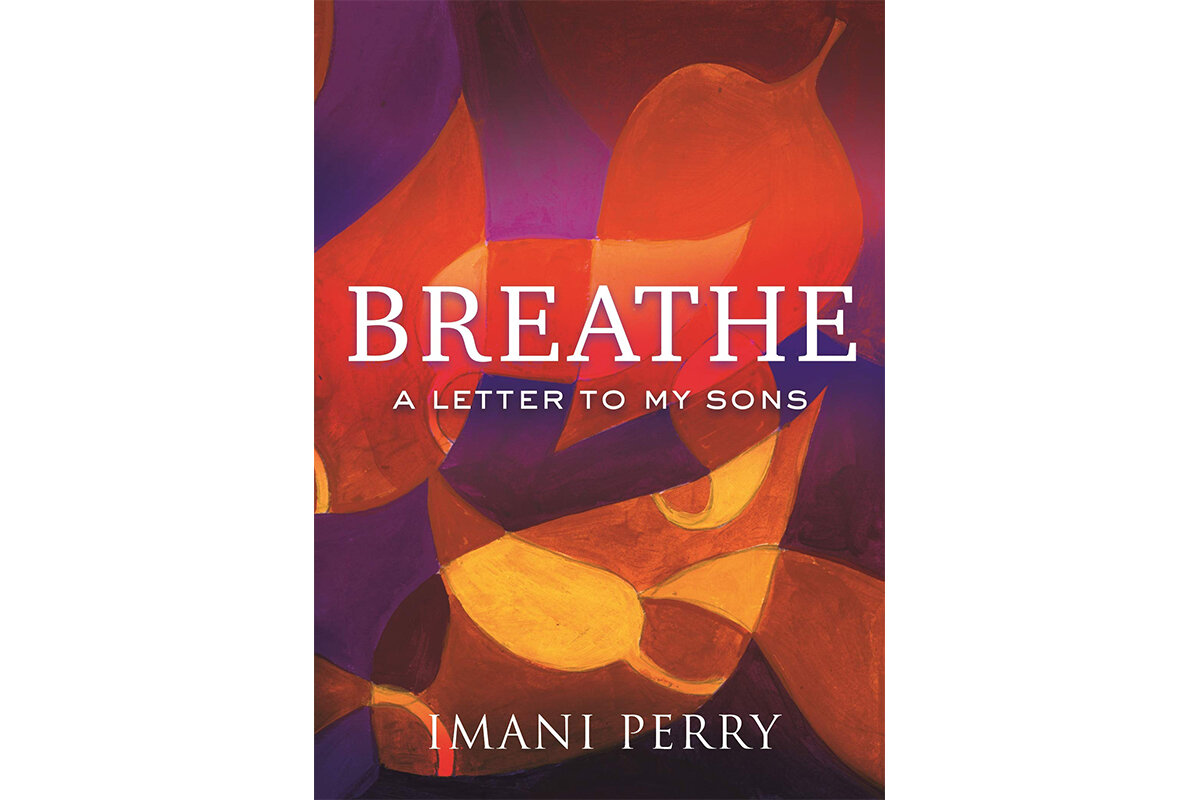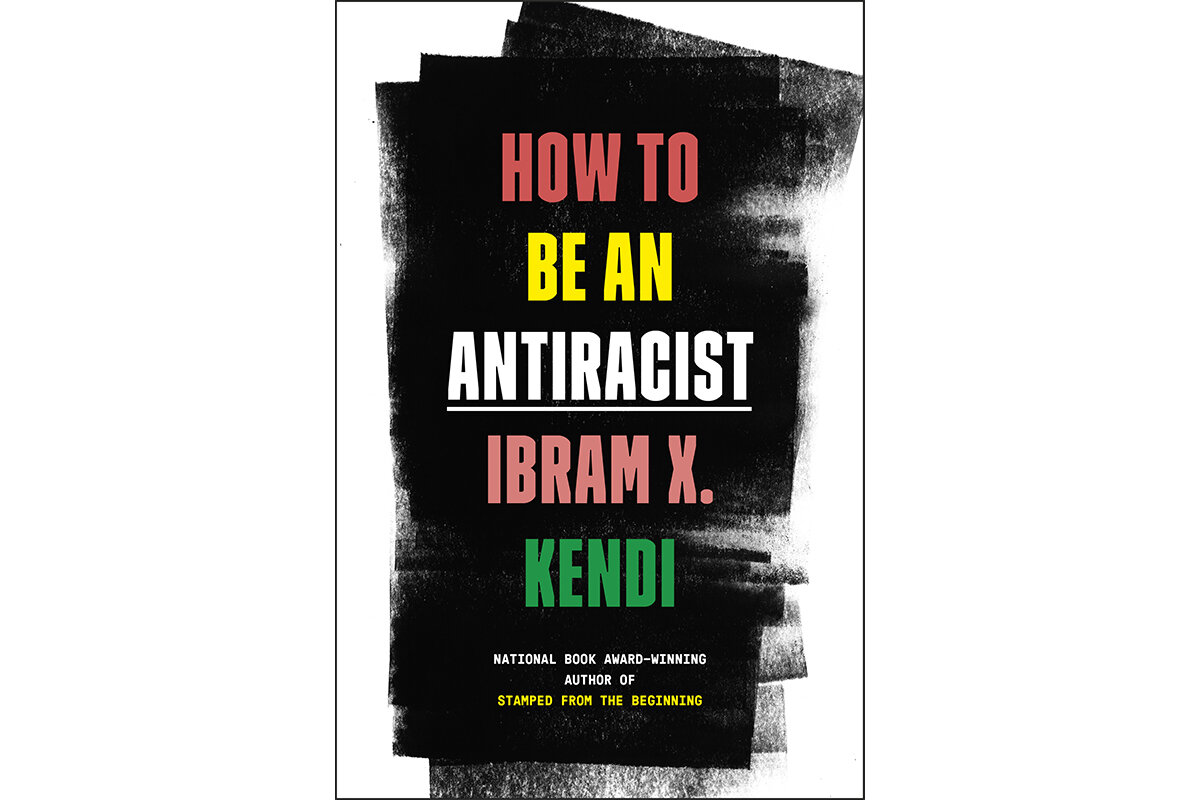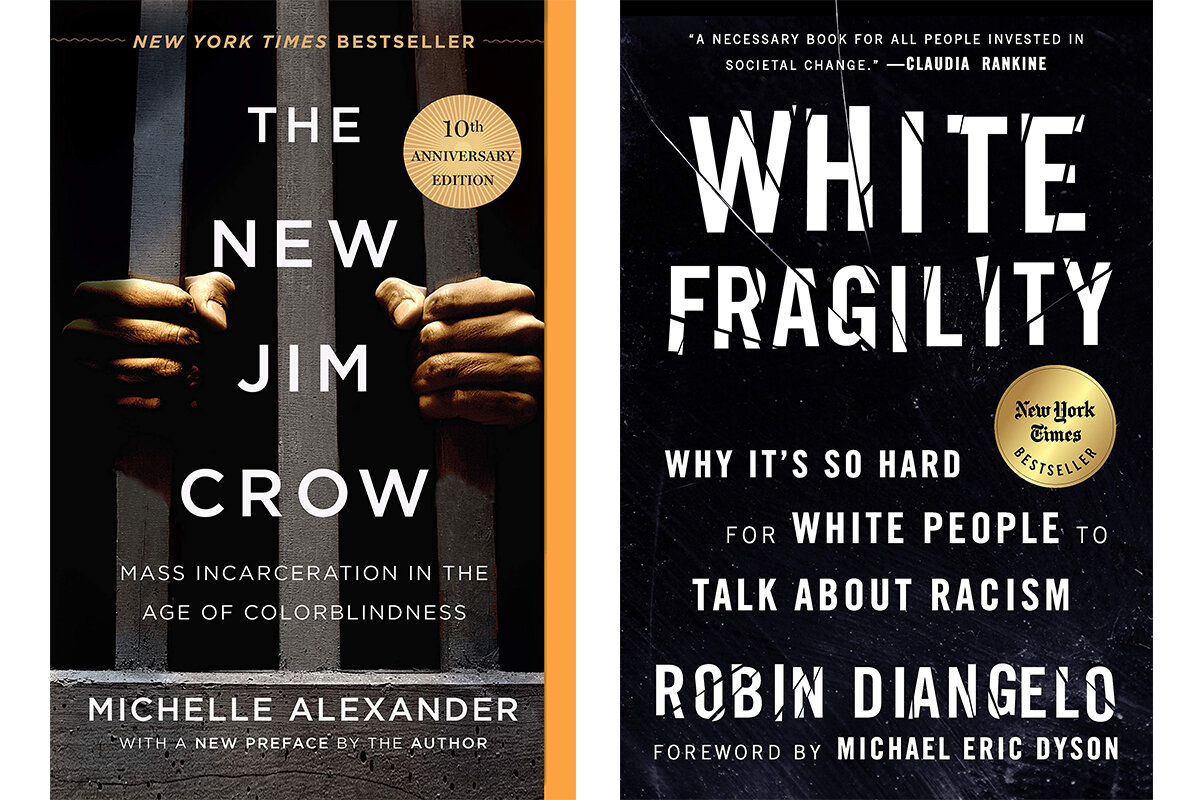Anti-racism reading list: 10 books to get started
Loading...
As a Black woman, my email and social media have been flooded recently with expressions of deep and sincere concern over race. I was horrified but not surprised by the killing of a Black man, George Floyd, by a white police officer in Minneapolis. There have been too many of these deaths for me to be shocked. I say to everyone who asks, “Saddle up and stay awhile, because there is no quick fix.”
But it is time for some context, which can be found by reading a good book.
The gap in American history, which this tragedy exposes, can only be filled with knowledge. Read, watch, learn, and then talk a lot. As I write this, I have at least 30 books on the floor of my office, and I’m pondering which ones would provide the right first experiences. I don’t want to throw people into the deep end of the social justice pool right away. It’s hard – the truths of being Black in America. I have narrowed it down to 10 that can serve as a way of sticking your toes in the water. Ten is a hard list.
Why We Wrote This
To understand this moment in America's fraught history of race, essayist Andrea King Collier suggests starting with these books. They speak to the ways that Black people have been denied their humanity, and offer pathways toward equity, justice, and empathy.
I called Gayatri Patnaik, associate director and editorial director at Beacon Press, which has a long and storied history of publishing books that speak to racial discourse and social justice. Ms. Patnaik suggested “White Fragility: Why It’s So Hard for White People to Talk About Racism,” by Robin DiAngelo, a white woman, which Ms. Patnaik says is “useful for white people to read so they can grapple with their privilege.” She also recommended “Gather at the Table: The Healing Journey of a Daughter of Slavery and a Son of the Slave Trade” by Thomas Norman DeWolf and Sharon Leslie Morgan. He is a white descendant of a family that profited from the slave trade and she is a Black woman who is descended from slaves.
I curate my beginners’ list carefully because guilt and shame are not the goal. I need you to understand why I feel an undercurrent of rage at white people who weaponize their institutionalized privilege. When a white person like Amy Cooper can call the police on a Black man who is merely bird watching in Central Park, we see evidence of privilege with too few consequences.
I also put on my list the very powerful “Breathe: A Letter to My Sons,” by Imani Perry, because it is written to her Black sons about growing up in America. As the mother of a Black son and the grandmother of two little Black boys, I found that she spoke to my fears and prayers. Ms. Perry’s book holds up next to the award-winning “Between the World and Me,” by Ta-Nehisi Coates, written for his son.
Ms. Patnaik also recommended Crystal Fleming’s “How to be Less Stupid About Race: On Racism, White Supremacy, and the Racial Divide.” “Don’t let the light-sounding title fool you,” she says, “it’s very smart and sharp.” She’s right. It is a good primer on how race gets covered in the media and plays out in politics, culture, and in the classroom.
I went back to one of my white friends to ask her what she had read on the lives of Black folks before now. She replied, “The Help” and “The Secret Life of Bees.” I didn’t have the heart to tell her that they weren’t about the Black experience, but they were books with Black folks in them.
If you want to know what Black people are thinking and feeling, you have to go to the books with their voices and their lived experiences. And I can’t help but think about how it was against the law during slavery for Blacks to read or write. My true confession is that I hadn’t really read Black voices until I was in my early 30s. The first book I read was Maya Angelou’s memoir, “I Know Why the Caged Bird Sings.” It blew my head back and changed my life as a writer. On its 50th anniversary, it still tugs at the truths of being Black in America. Then I read James Baldwin’s “The Fire Next Time,” a book that may have felt militant when it was published more than 40 years ago, but now it reads like it was ripped from the headlines.
And as I shaped my little list, others were shaping theirs. For the first time in the history of bestseller lists, the recent Top 20 books all dealt with race, privilege, and inequity. One book on almost everybody’s list is scholar Ibram X. Kendi’s “How to Be an Antiracist.”
And if the only victim you can name right now is George Floyd, dig into Wesley Lowery’s “They Can’t Kill Us All: Ferguson, Baltimore, and a New Era in America’s Racial Justice Movement,” which is a deep dive into the quest for justice in the deaths due to police violence of Michael Brown, Tamir Rice, and Freddie Gray.
My favorite book on the list was written for children, but it speaks to the little Black girl who still lives in me. “The Watsons Go to Birmingham – 1963” written by Christopher Paul Curtis. I lived through this time that Curtis frames. I read it once a year and it touches my soul each time.
But I caution anybody that reading about race, even if it is seen through the eyes of a child, is not a beach read. None of these books is going to be made into a Hallmark movie. Each of them will get under your skin and linger a while, as they should. Any reader would want to look away or at least put it down for a minute.
To understand how we got here, I also suggest “The New Jim Crow: Mass Incarceration in the Age of Colorblindness,” by Michelle Alexander. One needs to understand the legal context behind the inequity in our incarceration system. I recently reread it.
I am a Black woman who has loved books, and the secrets they hold, all my life. I am a descendant of slaves and of Jim Crow. My book bag is heavy. But I persist. Yet in the end, when I need to be anchored, I go back to the writings of Martin Luther King Jr., who speaks with a sense of urgency that holds up in 2020 as much as it did in the 1960s.
What should happen when white and Black people read the voices of Black men and women who are telling you about the America they know? I don’t look for it to heal us or wipe away the hurt and the pain. But it is a start. It is one piece of the puzzle.
This is not by any means a comprehensive list. It isn’t even my complete list. There is so much enlightening reading out there. Mine is a list that will get you started and hopefully make you want to read more.
Andrea King Collier is a multimedia journalist and author based in Lansing, Michigan. She specializes in writing about health and health policy issues.








